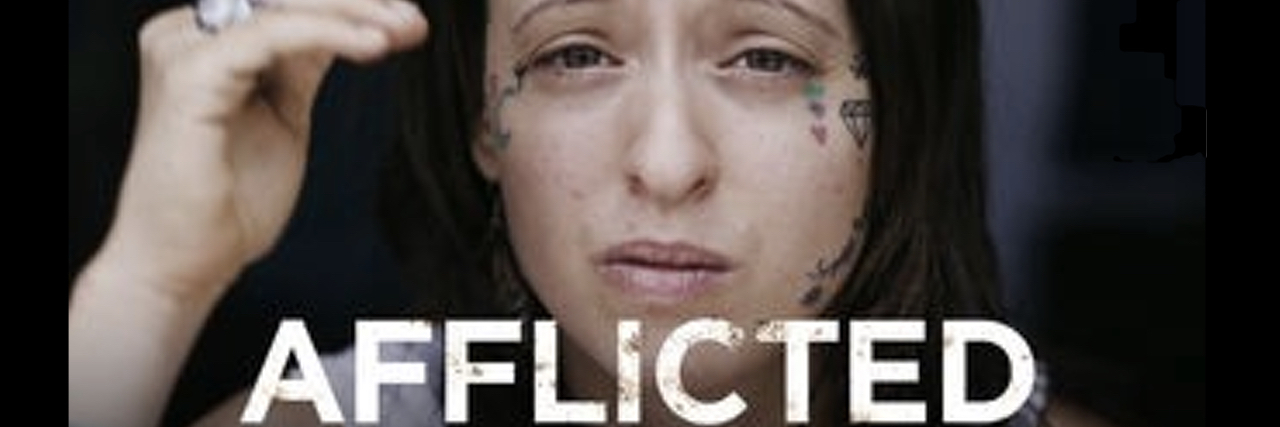Open Letter Asks Netflix to Immediately Remove 'Afflicted' From Streaming
A group of artists, writers, physicians and scientists including Monica Lewinsky, Lena Dunham, “Unrest” filmmaker Jennifer Brea and designer Ally Hilfiger have signed an open letter to Netflix denouncing its recent documentary “Afflicted” for its portrayal of chronic illness, and asking Netflix executives to immediately remove the series from its platform.
“Afflicted” has been the subject of criticism since it was released on Netflix in August. Several cast members shared tweets, YouTube videos and blogs explaining how they believe the docuseries misrepresented their stories and created a “false narrative” that cast doubt on their illnesses. The show’s producers have not spoken publicly about the series.
The letter, published Monday on Medium, is addressed to Netflix executives Ted Sarandos, Lisa Nishimura, Brandon Riegg and Verna Meyers, and expresses the letter writers’ “profound disappointment” with the docuseries’ “unethical treatment of its subjects and its many factual errors and omissions.” The series follows seven people with chronic illnesses including myalgic encephalomyelitis/chronic fatigue syndrome and chemical and mold sensitivity.
Rather than authentically depict these participants’ experiences and the biomedical research that might explain their illnesses, Afflicted used every creative tool and untenable journalistic practice to advance a narrative that suggests these patients’ problems are primarily psychological, a theory that is not supported by the evidence.
The letter explains that the seven people featured on “Afflicted” were led to believe the series would compassionately represent their experiences with their diseases, which can be difficult to treat and not well-understood by the general public. However, the letter writers identify two key areas where they allege the show failed: It misrepresented the subjects and used “questionable tactics” to get footage, and featured medical and scientific flaws.
According to the letter, subjects were encouraged to undergo risky or unnecessary medical procedures, met with practitioners for appointments that were set up by the production team rather than the patient, and the filmmakers didn’t show how seriously the subjects took their mental health and the psychiatric treatments they had already tried. The show also included expert opinions from doctors who had never examined the patients.
In addition, the letter refutes “Afflicted’s” representation of illnesses like Lyme disease, myalgic encephalomyelitis, mold and chemical sensitivities and explains the scientific background the show failed to include. They state filmmakers chose not to include interviews with doctors and scientists who would have provided clinical evidence.
The problems with this film aren’t just hypothetical, the letter argues — the cast has received online harassment, had their professional reputations questioned and their “friends turn against them.”
If Afflicted remains on Netflix, it will hurt many more people. Many people living with chronic illnesses, including those depicted in Afflicted, are routinely denied disability benefits. Some are abandoned by their families and fall into poverty, homelessness, and food insecurity when they become too ill to work. The stigma surrounding these conditions among health care providers poses a barrier to accessing quality medical care, putting patients at risk. The disbelief of loved ones — and the culture at large — contributes to the high rates of suicide among patients with these conditions.
In addition to removing the series from Netflix, the letter asks Netflix to release a formal apology and statement of Netflix’s future plans for programming that includes talent, crew and consultants with disabilities.
Included among the signers are Porochista Khakpour, author of “Sick: A Memoir;” Lars M. Steinmetz, professor of genetics at Stanford University School of Medicine; Abby Norman, author of “Ask Me About My Uterus,” and Lawrence Carter-Long, Director of Communications for the Disability Rights Education & Defense Fund.
You can read the full letter and add your voice here.

